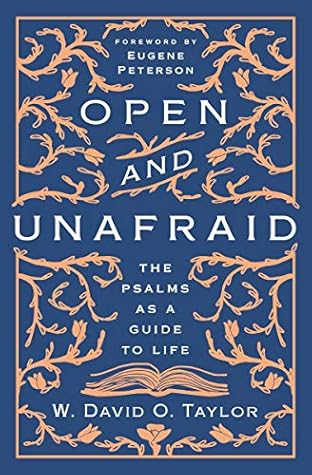More on this book
Community
Kindle Notes & Highlights
Read between
December 20, 2021 - January 18, 2022
the Psalms showed me that imagination was a way to get inside the truth. As I have often told my students, a metaphor is a verbal link between the invisible and the visible, between heaven and earth.
The primary use of prayer, as the Psalter sees it, is not for expressing ourselves but in becoming ourselves, and we cannot do that alone. In praying the Psalms with others, then, we learn to become more and more ourselves in the company of the faithful.
What the psalms offer us is a powerful aid to un-hide: to stand honestly before God without fear, to face one another vulnerably without shame, and to encounter life in the world without any of the secrets that would demean and distort our humanity.
The psalmist describes the experience of “keeping silent” about sin as a kind of disintegration.
If the common saying within recovery ministries is true, that we are only as sick as the secrets we keep, then the secrets we keep result in the deterioration of our humanity. Kept hidden, our secrets rob us of vitality.
Likewise, a community that refuses to be honest to God, from whom no secrets are hid, cannot fully live out the faith, hope, and love that the Psalter invites us to inhabit in the name of the one who opens the way to the Father and who generously gives us the Spirit so that we might live without fear.
Looking back on that period of life, I think of the words that are commonly attributed to Mother Teresa: the most terrible poverty is loneliness, and the feeling of being unloved.
Psalm 2 reminds us that “my” faith always exists in relation to “our” faith. It reminds us that faith is always played out—tested and tried, confirmed and strengthened—on a communal, social, and public stage.
Zephania Kameeta translates it: The love and fellowship of the believer is the foretaste of the life together in your kingdom. Lord, keep me in this fellowship of those who do your will. Strengthen me not to drop out of this way.
In the early Middle Ages, Saint Benedict stipulated that all monks and nuns should recite the entire Psalter in the course of a week.14 Alfred the Great, who became king of the West Saxons in England in 871, was famous for his habit of saying the psalms both at dawn and at dusk. In the late Middle Ages many young clerks-to-be studied their letters by learning the Psalter—by heart. Throughout this era, the only part of the Bible a layperson likely possessed was a copy of the Psalms.15 It was their “Bible.”
Personally, in reflecting on the events of the past several days, a verse from Psalms comes to mind. “When I consider the heavens, the work of Thy fingers, the Moon and the stars, which Thou hast ordained; What is man that Thou art mindful of him?”
In the psalms we find words from God, we find words about God, and we find words to God.
And as G. K. Chesterton imagines it in his book Orthodoxy, “God says every morning, ‘Do it again’ to the sun.”
Poetry slows us down enough to give God’s world the attention it deserves.
could talk about the majestic character of God, or we could put Charles Wesley’s Trinity hymn, drawn from Psalm 33:6, on the lips of a congregation and let the people taste it for themselves.


